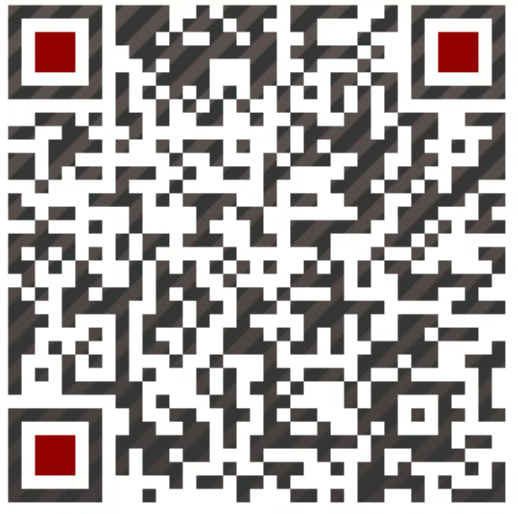北京翻译公司的规范与标准
很多人对于北京翻译公司其实了解的都是片面的,其实在北京翻译公司内部,我们拥有着一些具体的规范与标准,下面详细为大家介绍:
Many people know Beijing Translation Company one-sidedly. In fact, within Beijing Translation Company, we have some specific norms and standards. The following is a detailed introduction for you:
根据市场经济的需要,一般行业都制定标准,如产品标准、技术标准、质量标准、外包装标准等。翻译产业当然也应当有翻译服务标准。标准是对重复性事物的概念所作的统一规定,有利于规范化管理,实施统一质量要求、统一操作过程,达到统一的项目目标。标准以实践经验的综合成果为基础,经过有关方面协商一致,由主管部门批准,以特定的形式发布,作为共同遵守的准则和依据。通过制定、发布和实施标准,达到统一是标准化的实质。获得最佳次序和社会效益是标准化的目的。制定标准一方面可规范企业行为,另一方面便于社会对业内行为的识别和监督。如上所述,从2003年起,中国译协会同有关单位已制定完成了三部翻译服务标准。
According to the needs of market economy, the general industry has formulated standards, such as product standards, technical standards, quality standards, outsourcing standards, etc. Of course, the translation industry should also have translation service standards. Standard is a unified regulation of the concept of repetitive things, which is conducive to standardized management, the implementation of unified quality requirements, unified operation process, and the achievement of unified project objectives. The standards are based on the comprehensive results of practical experience, approved by the competent authorities through consensus, and issued in a specific form as guidelines and basis for common compliance. It is the essence of standardization to achieve unification by formulating, issuing and implementing standards. The aim of standardization is to obtain the best order and social benefits. On the one hand, setting standards can regulate enterprise behavior, on the other hand, it is convenient for the society to identify and supervise the industry behavior. As mentioned above, since 2003, the Chinese Translation Association and relevant units have formulated and completed three translation service standards.
翻译服务标准中的质量要求不同于翻译理论书上讨论的翻译标准。如《翻译服务质量要求》(GB/T19682-2005)的国家标准,译文质量要求根据以下四个方面来评定:
The quality requirements in translation service standards are different from those discussed in translation theory books. For example, according to the national standard of "Quality Requirements for Translation Service" (GB/T19682-2005), translation quality requirements are assessed in the following four aspects:
a)译文使用目的:
(a) Purpose of use of the translation:
1类——作为正式文件、法律文书或出版文稿使用;
Category 1 - Used as official documents, legal documents or published manuscripts;
2类——作为一般文件和材料使用;
Category 2 - Use as general documents and materials;
3类——作为参考资料使用;
Category 3 - Use as reference material;
4类——作为内容概要使用。
Category 4 - Used as a content summary.
b)原文文体、风格和质量;
B) Style, style and quality of the original text;
c)专业难度;
C) Professional difficulty;
d)翻译时限。
D) Translation time limit.
从翻译专业的理论上讲,在讨论翻译标准时,不考虑翻译的时限和原文的专业难度和质量,甚至也不考虑原文的文体。但是,翻译服务是有偿服务,不能不考虑不同用途、不同文本的不同翻译要求以及原文本身的质量,因为翻译同等字数的译者付出的精力和时间是不同的,对译文承担的责任大小也不同。根据对责任和义务相当的原则,服务费用也不一样。
Theoretically speaking, when discussing translation criteria, translation time limit, professional difficulty and quality of the original text are not taken into account, and even the style of the original text is not taken into account. However, translation services are paid services, which can not be ignored for different purposes, different translation requirements of different texts and the quality of the original text itself, because translators who translate the same number of words pay different energies and time and take different responsibilities for the translation. According to the principle of equal responsibility and obligation, service costs are different.
以上是就笔译而言,口译服务也是如此,例如就导游翻译来说,服务标准就是用来评判导译/陪同口译所提供的整体(服务)质量的标准。导游翻译具有鲜明的职业特点,旅游服务有社会、政治、意识形态、(跨)文化和民间外交等属性,故与其他口笔译标准不同。导译标准并不(完全)是传统上甚至中外翻译界所讨论的那种“标准”,它已涉及对人评价的标准,从而转过来成为影响判断导译标准的因素,甚至是决定因素。在跨文化交际中,如陪同口译或涉外旅游接待,导译员必须把整个接待过程视为一个“交际单位”,或“一个完整单位的交际”。这一交际单位的构成成分主要是传统意义上的“旅游六要素(行、游、住、食、购、娱)”。假设在其他五个要素没有出现原则问题的前提下,“完整单位交际”是否成功,就完全看在旅游者“游”(第二个要素)的过程中导译员是如何发挥其主观能动作用的。
The above is also true of interpretation services in terms of translation. For example, in terms of guide translation, service standards are used to judge the overall quality of services provided by guide/escort interpreters. Tour guide translation has distinct professional characteristics. Tourism service has social, political, ideological, cross-cultural and folk diplomacy attributes, so it is different from other interpretation and translation standards. Guidance criteria are not (completely) the "criteria" discussed in the traditional or even in the translation circles at home and abroad. They have already involved the criteria for evaluating people, which in turn become the determinant or even the determinant of the criteria for judging guidance. In cross-cultural communication, such as accompanying interpretation or foreign tourism reception, the interpreter must regard the whole reception process as a "communication unit" or "communication of a complete unit". This communication unit is mainly composed of six elements of tourism (travel, travel, accommodation, food, shopping and entertainment) in the traditional sense. Assuming that there are no principled problems in the other five elements, the success of "complete unit communication" depends entirely on how the interpreter exerts his subjective initiative in the process of tourists'"travel" (the second element).



